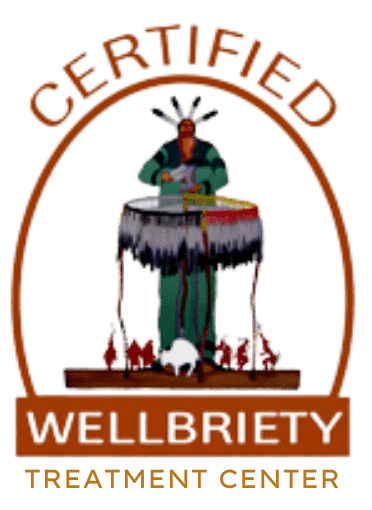ChatGPT said:
Twelve-step recovery groups, such as Alcoholics Anonymous (AA) and Narcotics Anonymous (NA), play a vital role in aftercare following substance abuse treatment by offering ongoing peer support, structure, and accountability. These programs provide a sense of community where individuals can share experiences, gain encouragement, and work through challenges together, which significantly reduces feelings of isolation that often accompany early recovery. The step-based framework also helps participants develop spiritual and emotional growth, reinforcing the coping strategies and relapse prevention skills learned in treatment. By attending regular meetings and connecting with a sponsor, individuals are more likely to maintain long-term sobriety and continue building a life free from substance use.
Programs of Recovery
Programs of recovery were created to provide a community and support system for those battling an addiction or those close to someone who is struggling. These programs advocate keeping people accountable while helping them achieve and maintain sobriety. Two of the most well-known programs of recovery are Alcoholics Anonymous (AA) and Narcotics Anonymous (NA). These 12-step programs were created with the intention of having those with SUDs follow a 12-step guide to recovering and maintaining sobriety.
Dealing with a SUD is never easy for the person with the addiction, however, it can also be detrimental to those closest to them. Oftentimes, when someone has given up control of their lives and their behaviors, they stop caring about who they hurt along the way. Al-Anon and Nar-Anon are two recovery support groups designed for the family and friends of addicts. They identify some of the behaviors and situations one might experience when dealing with someone either in recovery or currently struggling.
If you’re looking to attend a recovery program or support group, there are options outside of the non-secular, spiritually-based programs. SMART Recovery, “Self-Management and Recovery Training”, is a community of recovery support groups that adopt a secular approach to addiction recovery. SMART serves to create a safe space for individuals looking to recover while obtaining self-discovery throughout the program.
Surrounding yourself with individuals that are on a similar recovery journey as you is important for long-term recovery. The community you have around you matters—make sure it’s a community that is going to support and further your growth.
What Are the 12 Steps of AA and NA?
Step 1: Honesty
“We admitted we were powerless over alcohol and that our lives had become unmanageable.”
Your recovery journey begins with admitting to yourself and others that you have a substance problem. It can be challenging to hold yourself accountable, which is why it is encouraged that you get connected with a counselor or AA/NA sponsor for additional support.
Step 2: Faith
“Came to believe that a Power greater than ourselves could restore us to sanity.”
This step encourages members to find something outside of themselves that will give them the support and inspiration to help maintain sobriety. If you’re not religious, speaking with other AA or NA members can offer new ideas and perspectives that may work better for you.
Step 3: Surrender
“Made a decision to turn our will and our lives over to the care of a Higher Power as we understood it.”
Step 3 invites members to recognize their pattern of self-destructive decisions and let go of their need for control. Surrendering to the care of a Higher Power can be difficult and often terrifying to accept—but knowing that you cannot accomplish what you need to on your own, pushes members to come to terms with it.
Step 4: Soul Searching
“Made a searching and fearless moral inventory of ourselves.”
Soul-searching and self-reflection are essential if you desire growth and change in your recovery process and life. It encourages us to identify and deal with the areas we’ve ignored for far too long. Growth can’t be acquired if we choose to stay the same.
Step 5: Integrity
“Admitted to a Higher Power, to ourselves, and to another human being the exact nature of our wrongs.”
Confessing to yourself and a Higher Power that you acknowledge the nature of your self-destructive decisions opens yourself up to new opportunities for improvement. Putting your feelings out on the table frees you from the weight you’ve been holding on to for far too long.
Step 6: Acceptance
“Were entirely ready to have a Higher Power remove all these defects of character.”
Altering your belief system and accepting that sobriety was the right decision for you will help shift your mindset to be more positive. Accept your faults, and your past mistakes, and move forward with the hope and motive of being better.
Step 7: Humility
“Humbly asked a Higher Power to remove our shortcomings.”
With acceptance comes humility and transparency—acknowledge how far you have come and be proud of it, but don’t allow that pride to kick you back to where you started. Oftentimes, people believe they’ve achieved sobriety once they’ve reached a certain goal and they choose to stop attending 12-step meetings—this does not always work out in their favor. Achieving a certain level of sobriety does not always exempt you from requiring assistance or support. Whether you’re in recovery or not, surrounding yourself with a healthy community is always a key factor in excelling in life.
Step 8: Willingness
“Made a list of all persons we had harmed and became willing to make amends to them all.”
Improvement and change cannot occur if you are unwilling to make the modifications necessary for your recovery. Humility plays a key role in willingness because individuals often require modesty to demonstrate the desire to change and make amends with their past.
Step 9: Forgiveness
“Made direct amends to such people wherever possible, except when to do so would injure them or others.”
Forgiveness is one of the most freeing steps in recovery. Forgiveness isn’t just about forgiving those that have done you wrong, but it is also forgiving yourself for allowing it to happen. Resentment is a restraint on growth and can even put you back in the cycle of substance use. Free yourself of that weight and choose to forgive and heal.
Step 10: Maintenance
“Continued to take personal inventory and when we were wrong promptly admitted it.”
Recovery is a choice you make every single day in order to maintain your progress. It is choosing what’s best for your mental and physical health despite the ongoing cravings and negative thoughts. Allow your progress to be motivation and inspiration not to turn back and have to start all over again.
Step 11: Making Contact
“Sought through prayer and meditation to improve our conscious contact with God as we understood Him, praying only for knowledge of His will for us and the power to carry that out.”
Step 11 encourages you to make contact with a Higher Power through stillness, meditation, prayer, and/or reflection. If you’re not a religious person, aside from prayer these are all activities you can partake in. Allow yourself to find a quiet place to be still and tune in to your thoughts.
Step 12: Service
“Having had a spiritual awakening as the result of these steps, we tried to carry this message to alcoholics and practice these principles in all our affairs.”
The twelfth and final step encourages members to share their experiences and the message of hope with others. Take all of the work you’ve done and the progress you’ve made within yourself by sharing it with other people in need of that transformation in their own lives.
What is the 12-Step Program of Recovery?
The most well-known 12-step programs of recovery are Alcoholics Anonymous (AA) and Narcotics Anonymous (NA). The purpose of these mutual aid organizations is to spread awareness and support for those looking to recover from substance addiction. AA and NA are accessible to any and everyone that is struggling with substance abuse. The peer support groups are especially beneficial when you feel alone in your battle with a SUD. 12-step groups surround you with people that are on a similar journey as you and will be able to understand and relate to the feelings and cravings you’re experiencing.
How Does it Work?
In the 12-step model, the program is typically designed to go in order of steps from one to twelve, however, many people find themselves having to revisit and repeat some steps as they navigate through their recovery—and that’s okay.
The 12-step program holds group meetings for those in recovery that discuss the mental, emotional, and physical effects of addiction. The program stems from a spiritual, Christian-based approach, however, you are not required to be religious or spiritual to attend. Every group has a sponsor—someone in long-term recovery—that leads the members of the group, acting as a mentor.
There are open meetings and closed meetings to choose from. Open meetings are accessible to alcoholics and nonalcoholics that are looking to observe the meetings and program. Closed meetings are open to AA and NA members only who struggle with a substance addiction.
All in-person meetings are typically held in large rented spaces such as community centers, churches, treatment centers, clubhouses, office buildings, etc. Online and telephone meetings are available for those who aren’t comfortable with in-person meetings. No matter how you attend to get to a meeting, the only important part is that you get to one.
List of 12-Step Programs
- AA – Alcoholics Anonymous
- CA – Cocaine Anonymous
- CMA – Crystal Meth Anonymous
- HA – Heroin Anonymous
- MA – Marijuana Anonymous
- NA – Narcotics Anonymous
- N/A – Neurotics Anonymous, for recovery from mental and emotional illness
- NicA – Nicotine Anonymous
- PA – Pills Anonymous, for recovery from prescription pill addiction.
- SLAA – Sex and Love Addicts Anonymous
- SRA – Sexual Recovery Anonymous
- SIA – Survivors of Incest Anonymous
- EDA – Eating Disorders Anonymous, for recovery from eating disorders
- EA – Emotions Anonymous, for recovery from mental and emotional illness
- FA – Food Addicts in Recovery Anonymous
- FAA – Food Addicts Anonymous
- LAA – Love Addicts Anonymous
- OA – Overeaters Anonymous
Reach Out
Here at Royal Life Centers, it is our sole mission to supply you with the addiction treatment services best suited for you and your situation. For that purpose, our admissions specialists can direct you to one of our outreach providers that can help you receive the treatment you’re looking for.
If you or a loved one is struggling with substance abuse, please feel free to reach out to us at 877-RECOVERY. Our addiction specialists are available 24/7 to assist you through this time and find hope in recovery.













